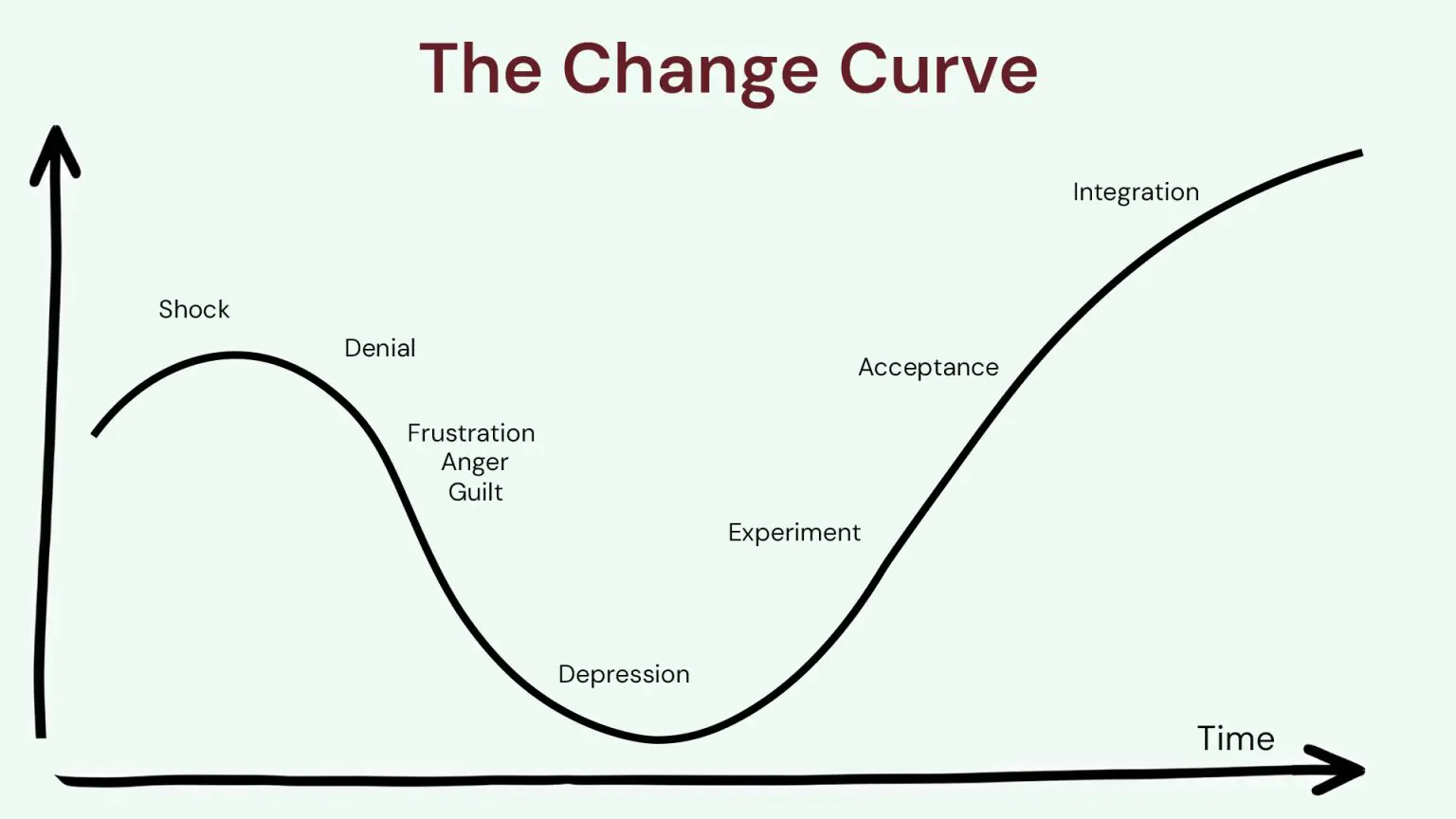Emotions are an essential part of being human
We all experience numerous emotions each day – guilt, joy, sadness, anger, anxiety. Some are fleeting, some more persistent, and some are more pleasant than others.
Whether positive or negative, all emotions are a normal and essential part of being human. They are the body’s way of helping us understand and respond to the world around us.
Much of the biology behind our emotions developed thousands of years ago, at the dawn of time, when our environment was more hostile, and primitive man had to act quickly in order to survive. In those days, confronted by a serious threat, our bodies would become flooded with chemicals like adrenaline or cortisol which prompted us to take immediate and life-saving action – to run away, to fight or to stand our ground.
Nowadays, even though our world is very different, our bodies are still programmed to release stress chemicals in response to new challenges or encounters which might be dangerous for us. These chemicals can make us feel angry, irritable, anxious or sad.
Why is carenting so emotional?
Big life changes – such as becoming a carent – and major personal losses such as a job loss or bereavement are known to generate a collection of emotions which tend to follow a similar pattern in all humans.
This pattern is illustrated in the figure below. It was initially documented by expert Elizabeth Kubler Ross in her work on grief but has since been observed in other situations associated with loss and change.
The timing isn’t always as accurate or sequential as the graph indicates. But there is no doubt that in the midst of change, we are programmed to experience a range of emotions until we adapt or come to terms with the new situation.

Given the challenges and losses carents face, then it’s no surprise that carenting can often feel like an emotional rollercoaster.
Approaches to emotional self care
How we deal with our feelings can greatly impact our well-being and satisfaction with life.
When we are flooded with stress hormones or feeling negative we are more likely to view the world differently. This can affect our judgement, our ability to solve problems, and the way we respond to what others say. We are more likely to:
- Make snap decisions without thinking everything through and weighing up all the facts
- See things in terms of black-and-white and ignore shades of grey, making us more likely to be inflexible and unforgiving
- Feel vulnerable and inaccurately perceive interactions as hostile or threatening
- Overreact to or catastrophise situations
- Be slightly more irrational– more inclined to ignore reason when we make decisions
- Make emotive judgements – based on feelings rather than facts
Too many unwelcome feelings can also create a burden of their own, draining our energy or undermining our wellbeing.
Fortunately, we are not at the mercy of our feelings. We can learn how to live and work with them and in the process we can become better at navigating the twists and turns life brings.
However, we are all different and need to find an approach which works best for us.
Facing up to your feelings
Suppressing emotions – “having a stiff upper lip” or “soldiering on” – doesn’t make bad feelings go away, they just hang around and this can lead to other problems. If we bottle them up we can start brooding over them, or they can leak out and affect those around us.
Research shows that suppressing our emotions can actually endanger our health and wellbeing both physically and psychologically.
So facing up to our feelings and processing them in a healthy way can help us to develop a sense of control and a more balanced perspective.
It isn’t always easy to know exactly how we feel. In this TED talk, historian Tiffany Watt Smith explores how complex it can be to accurately name and understand our feelings
Deciding if and how to respond to your feelings
Once you understand what is triggering an emotion, then you can consider whether and how to respond in the best way for you.
Sometimes, a helpful response in the moment might simply be to do nothing other than accept it for what it is. Being willing to experience a situation as it is, rather than how you want or had expected it to be does not mean you have to pretend to yourself it’s good, or allow it to go on forever.
This TED talk by Psychologist Susan David explains the value of noticing and labelling your emotions in more detail – trigger warning it deals with grief and death
Some helpful tools to process and deal with emotions
Meditation and mindfulness
Meditation and mindfulness can help you to become more aware of your feelings without getting too caught up in them.
Active relaxation and movement
Active relaxation techniques such as Progressive Muscle Relaxation or Breathing exercises can help to release tension and relieve some of the physical reactions which can accompany intense emotions.
Connect with others
Humans are naturally designed to connect with each other through friendships and relationships. These connections can act as a buffer to help get us through difficult times. Talking through your problems and feelings – with someone you trust – can be immensely helpful.
Do more things you enjoy
We can balance bursts of negative emotions by ensuring we experience more positive feelings. This approach is definitely not about false positivity such as “putting on a brave face” and pretending things are great when they aren’t. This is about actively increasing your regular exposure to things which make you feel good in some way such as participating in hobbies or other activities which give you a sense of pleasure, achievement or pride, or simply finding laughter wherever you can.
Noticing and taking time to savour or appreciate the positive things in your life can also be helpful. Techniques like scrapbooking, journaling, making or looking at photo albums can enrich this process.
Research also shows that being kind and helpful to others can generate positive feelings in you too so never forget that, as a carent, the care and support you provide to others is invaluable.
Be kind to yourself and delight your senses
If you are finding your emotions too overwhelming, then shifting your attention and focusing on pleasant sensations can be helpful to soothe and distract. Experiment with your different senses (taste, smell, touch, sight, hearing) to discover what works best for you. Over time you will learn what you need and which foods, scents, sounds etc are most enjoyable or relaxing.
Above all be kind to yourself – do not make life harder for yourself than it is already!
Mental and emotional wellbeing
Our emotions, feelings, thoughts and actions are all linked and changes in one can shape the others with implications for our mental and emotional health. This article focuses simply on dealing with the emotional realities of carenting.
If you have a serious mental illness then please explore the best emotional self care strategies for you with your specialist.
If you think you need extra help to manage strong and pervasive emotions such as anger or grief or if your emotional or mental health is being affected then please seek expert support. Speak to your GP or NHS 111 or consider self referring to NHS Talking therapies. Otherwise you can approach one of the mental health charities eg MIND, Samaritans, Calm, Shout
Keep in touch with Carents
Sign up to our newsletter and get access to all of our helpful tools and resources to support you and your parents on your carenting journey



